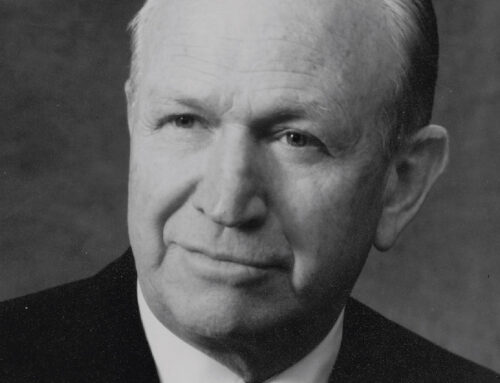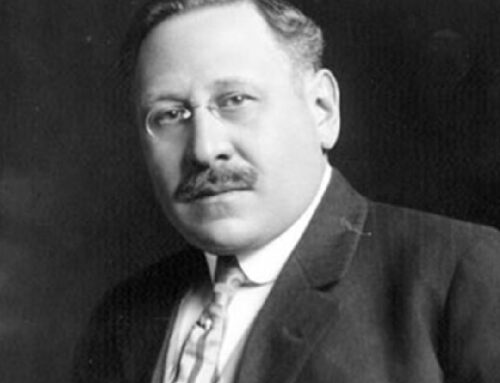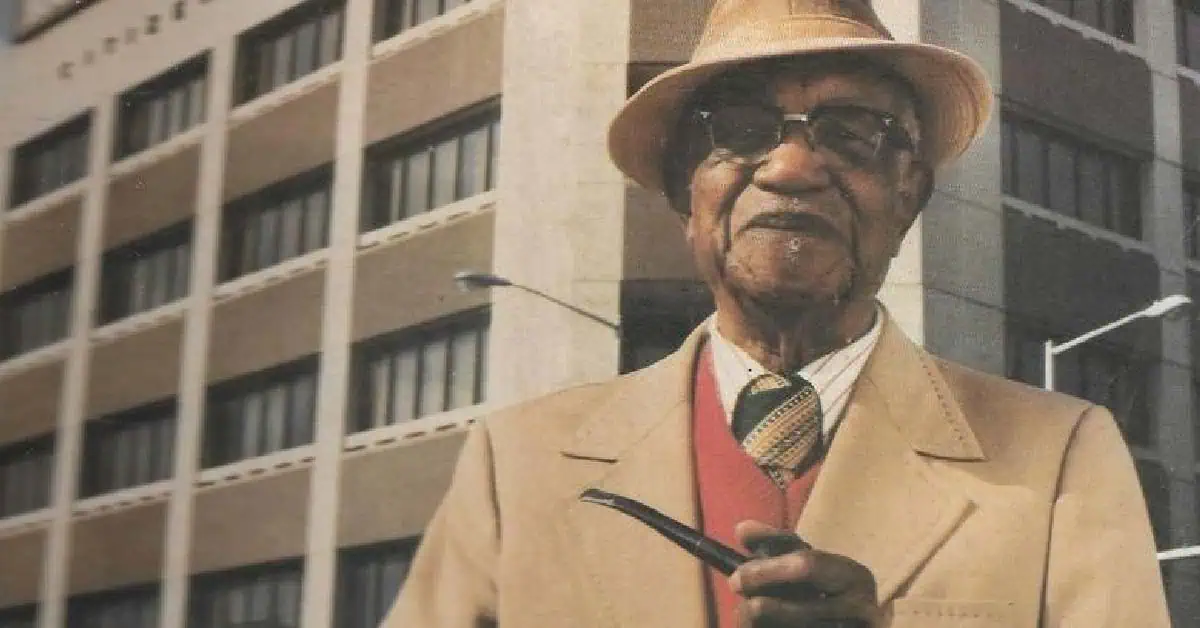
The grandson of slaves, Arthur George Gaston was born in 1892 in Demopolis, Alabama, to Rosie Gaston. There is no record of his father’s name, who died shortly afterward. A. G. Gaston started with nothing but the encouragement of his mother and grandparents. Over the next seventy years, he became the wealthiest black man in Birmingham, with a fortune of $30-40 million. Gaston’s path was never easy—his home was fire-bombed and at the age of eighty-three, he was kidnapped.
He was at or near the center of the racial strife of the 1960s, alongside Dr. Martin Luther King, Jr. He stirred great controversy during his life, but also provided employment and services to thousands of blacks in Alabama. This is the remarkable story of his 103-year-long life.
Beginnings
Former slaves Joe and Idella Gaston raised their grandson, Arthur, when his widowed mother left Demopolis to work for the wealthy A. B. Loveman family of Jewish merchants in Greensboro, Alabama. Arthur stayed behind and learned about self-reliance and self-respect from his grandparents. To be black in Alabama at the turn of the twentieth century typically meant a life in the cotton fields or in the iron or coal mines. Few if any expected anything more. When you walked down the street, you were expected to step off the sidewalk when you passed a white person. Lynchings like those witnessed by young Arthur were not uncommon, and they were never punished. Little had changed since the days of slavery.
However, Arthur Gaston never wanted to believe that he was locked into the path as were his fellows, and he dreamed that he could somehow escape those chains. One inspiration was Sebron Edwards, a black clerk at a Demopolis grocery store. Arthur was impressed that here was a black man doing counting, doing a thinking man’s job. So, despite the fact that only about 30 percent of Alabama blacks had any schooling and the majority could not read or write, it was possible for a black man to “move up.”
Arthur’s home in Demopolis had a big, beautiful swing in the yard, better than any swing around. He charged the neighborhood kids—including pretty Creola Smith—buttons to ride the swing. He later said this was the first time he realized that people would pay for something they needed or wanted.
In 1905, the Loveman family (for whom Rosie had become the prestigious head cook) moved to Birmingham, where they had established a dry goods store in 1887. Rosie sent for Arthur, who moved into the big house with the Loveman family. Rosie was such a good cook that she soon started a freelance catering business, cooking for other wealthy white families. Arthur played with the Loveman’s son, Berney. Thus began Arthur’s lifelong friendship with prosperous white business people.
Rosie put a priority on Arthur’s education. She turned to Birmingham’s Carrie “Granny” Tuggle, who had taken in a boy from the Birmingham juvenile court in 1908. From that, Granny Tuggle developed an orphanage to train and raise black children. The Tuggle Institute instilled discipline, hard work, and learning in Granny’s students. Mrs. A. B. Loveman was a contributor to and teacher at the Tuggle Institute. Between Rosie and Mrs. Loveman, Arthur was given a place at the Tuggle Institute, where he rose to the top ranks of the students. Granny took him with her to church meetings and fundraising meetings, and used him as an example of the fine work she was doing with black youth.
A prominent supporter of the Tuggle Institute was Booker T. Washington, the most famous black man in America. His Tuskegee Institute in Tuskegee, Alabama, had a national reputation. Washington visited Granny many times, and Arthur heard the great orator speak. Washington believed in black self-reliance, on lifting oneself up by one’s bootstraps, and in doing the best you could where you were raised. Arthur became a huge fan of Washington, and read his book, Up From Slavery, again and again throughout his life.
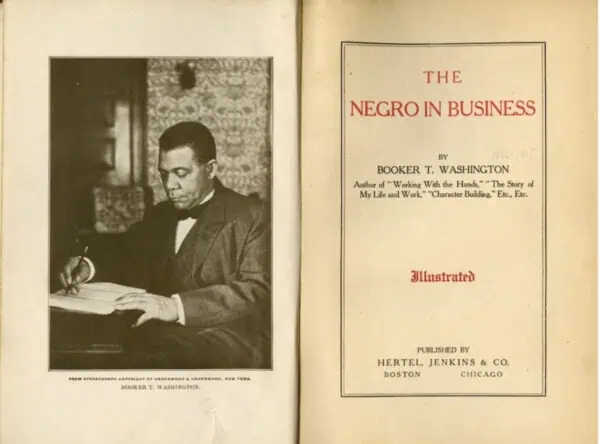
Arthur, increasingly known as just “A. G.,” asked Granny’s permission to go out and find a job. Permission granted, he found it difficult to find any real jobs, so he picked up any odd jobs that paid, from washing windows and cleaning floors to serving as a hotel bellhop. In each job, he worked harder and longer than anyone else, often to the displeasure of his fellow workers. He didn’t care.
In 1909, at the age of eighteen, A. G.’s schooling ended with the equivalent of a tenth-grade education. He long dreamed of attending Washington’s Tuskegee institute, but was never able to get the funds together to enroll. Years later, A. G. served on the Institute’s board of directors.
Becoming a Soldier and a Man on His Own
The next year, A. G. wanted to join the army, but was too young to go without Rosie’s permission, which was not forthcoming. So he had to wait three years. He spent that time as a bellhop at Mobile’s fine Battlefield Inn. One wealthy customer was so impressed by A. G. that he asked A. G. to become his valet. Fortunately, A. G. turned him down, as the man died on the Titanic two years later.
A.G. also fathered his only child, Arthur George Gaston, Jr., while in Mobile. The mother took the son off to Detroit to raise him. Her name is lost in the dust of history. A. G. did not see his son again until many years later.
The lessons of A. G.’s grandparents, Booker T. Washington, and Granny Tuggle inspired him to save and invest. His frugality became legendary. He came to believe that, “of everything you earned, some is yours to keep.” Despite his meager earnings, A. G. bought a plot of land in Birmingham for $200, making monthly payments for years and holding onto the real estate for decades.
By 1913, A. G. was old enough to enlist on his own. A big part of the reason was the $15 a month military pay. He spent three years at Fort Riley, Kansas, where like other blacks he did kitchen and latrine duty. For extra money, he polished the boots of the white officers.
As World War I began, A. G. was shipped off to France in late 1917. “Negro” units, with few exceptions, were allowed only to do supply work, no combat. Nevertheless, they found themselves in the midst of battlefields. Hunkered down in a farmhouse, A. G. was saved when another soldier dragged him out just before a German shell hit the house.
By war’s end in 1919, A. G. was able to spend time in Paris, a unique experience where he did not have to get off the sidewalk every time a white person passed. A. G. was tempted to remain in this more open society, but always believed that you should do your work “at home,” as taught by Booker T. Washington.
While black American soldiers received many awards for bravery from the French government, they were not so highly regarded by President Wilson’s administration, which had a history of racism and segregation. When the international victory parade was held in Paris, the US government ensured that no black soldiers were allowed to participate.
A.G. and his fellow soldiers returned home expecting to be treated as heroes, but found nothing had really changed. Lynchings continued in the south, and by 1924 the Ku Klux Klan had over four million members. A US Senate bill to make lynching a federal crime failed to pass. Race riots occurred across the nation.
After serving out his seven-year commitment to the army, A. G. headed home from Fort Bowie, Texas. But first he stopped in Meridian, Mississippi, now the home of his old friend (and “swing customer”) Creola Smith and her parents, the prosperous blacksmith Abraham Lincoln “Dad” Smith and “Mom” Smith. Creola was one of the few women A. G. was comfortable talking to. Never willing to spend money on dating and partying, he had led a somewhat isolated life apart from his coworkers and fellow soldiers. Perhaps more inspiring were the conversations with Dad Smith, who urged him to never give up on his dreams, hard as it might be to achieve them.
Back in Birmingham, A. G. the would-be war hero found decent jobs as hard to get as ever. He got a job at a local dry-cleaning company for $1 a day, but lost it when the other workers convinced him to ask the owner for a raise for all of them.
Desperate to support himself and his mother, A. G. turned to the job he hoped he would never have to take—in the mines of the Tennessee Coal and Iron Company. The mines paid the high rate of $3.10 a day, but the work was brutal, alongside prisoners “leased” from the Alabama prison system. These mines did not have the modern tools used in northern mines, and the workers had to haul iron out of the mines on their backs. A. G. was lucky to spend much of his time working above ground in the paint shop.
One appeal of the mining company was that they provided nice houses in the mining town of Westfield, rented from the company. A. G. moved his mother into his Westfield house.
Despite the attractive pay, the mining company took the rent out of each paycheck, as well as everything bought at the company store at inflated prices. Not much was left over. When his fellow workers admired the great box lunches Rosie had prepared for A. G., he began selling lunches to the others. Rosie loved to cook, and was great at it. A. G. also sold peanuts and popcorn on payday, sometimes taking in as much as $20 in one day. He started loaning money to the other miners, charging 25 percent interest for the two weeks until the next payday. Lending became his most profitable business, and soon A. G. was often making $100 a month, of which he saved all but the $25 needed for food and rent. Still, he hated the mines and wanted out.
Getting Into Business
One of the many things that bothered A. G. was the “burial racket.” Like any other people, the miners wanted their oft-departed to be buried with respect. Each payday, those who had lost someone came begging for the money to pay for a proper funeral—about $100. The miners readily parted with their funds out of sympathy, and the knowledge that they might be next. But mixed in with the honest needs of the bereaved were hustlers. A. G. noticed that one woman seemed to lose her husband every week.
Seeing a need—and thinking of it only as a temporary stepping stone to his future—A. G. created the Booker T. Washington Burial Society, named after his hero. He went door-to-door, collecting 25 cents per week for the head of the household and 10 cents for any other family members, insuring a proper burial. Crisis hit when one of his first customers died after he had collected only a few dollars. With the support of the local ministers and a $75 reduced price from a local undertaker (paid over time), A. G. and his Burial Society survived the crisis.
In 1923, A. G. returned to Meridian, Mississippi to ask Creola to marry him, and to get Dad Smith’s blessing, which was not readily forthcoming. However, A. G. swayed the father by promising to let Creola finish college, and by offering to share his businesses with the older man; they agreed to create Smith and Gaston back in Birmingham. A. G. and Creola were soon wed.
Then, two more crises occurred: Rosie Gaston died, and slow business forced the mine to lay off A. G. With his entire “empire” based on serving the miners, the situation was perilous. A. G. took a higher-paying ($4.10 per day) but more dangerous job in a coal mine. But when A. G. and his coworkers were trapped underground and only escaped by crawling along a dangerous ledge, he quit that job.
A.G. and Creola moved to Fairfield, on the edge of Birmingham, one of the few middle class black neighborhoods in the area. A. G. also convinced Dad and Mom Smith to move to Fairfield to be near him and their daughter. Creola’s health was not good, and Dad Smith had diabetes, ultimately resulting in the amputation of his leg.
A. G. continued the Burial Society, but the undertaker who had given him the $75 discount price was fired. The new bosses did not want to continue the deal, imperiling the economics of the Burial Society. A. G. convinced Dad Smith to help him purchase the funeral home for $15,000 (at $500 down and $150 a month). The Smith and Gaston Funeral Home, A. G.’s first step in “vertical integration of the death industry,” was soon underway. The company sponsored gospel singers, concerts, and “Negro” radio programs across Alabama, and grew and grew.
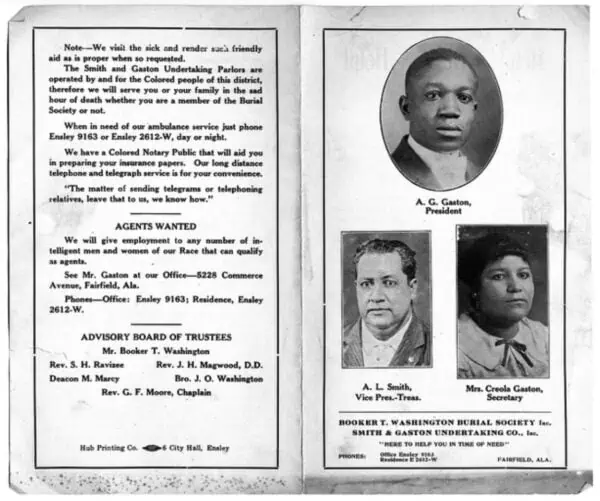
At this time, A. G. reached out to his long-gone son, and brought him to Birmingham to work in A. G.’s enterprises, though Arthur Gaston, Jr., never held key positions in the companies.
The stock market crash of 1929 and the succeeding Great Depression hit the south and Birmingham hard, especially poor blacks. Unemployment in Birmingham was among the highest in the nation, and over half the homeowners in the city stopped paying their mortgages. Others lost their savings in bank failures. But people kept dying and the insurance and funeral businesses survived.
In the economic collapse, the state of Alabama started paying teachers in paper “scrip” rather than cash. The scrip was only redeemable into cash twice a year. The deep-pocketed Dad Smith bought the scrip for 50 cents on the dollar, and then waited until he could convert it to cash, making a handsome profit. Dad and A. G. were tough men, in tough times, sometimes even called “ruthless.” But, like A. G.’s lending money to his fellow miners, their customers had nowhere else to turn for help.
In 1938, A. G. and Dad Smith bought a mansion on Kelly Ingram Park in the heart of downtown Birmingham, borrowing $50,000 from a white-owned funeral home to finance the purchase. The fabulous new Smith and Gaston Funeral Home became the symbol of their prosperity and furthered their reputation.
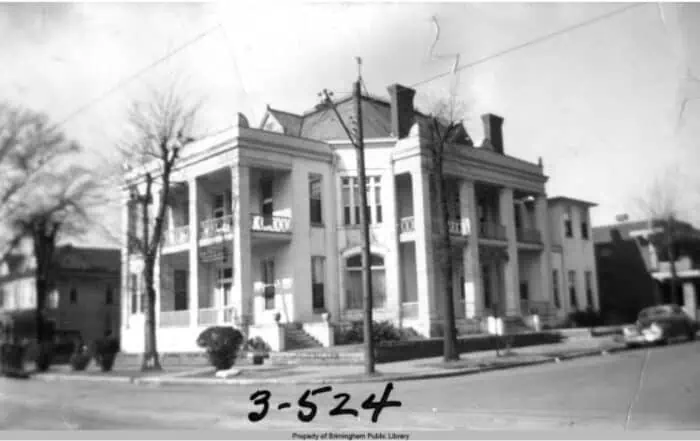
But in the middle of this success, more tragedy: Dad Smith died, and, the night before the new funeral home was to open, Creola died. A. G. was crushed, but threw himself into his work more than ever.
Also in 1938, A. G. founded the Brown Belle Bottling Company to make soft drinks. While this lingered on, A. G. was forced to close it in 1950, covering the losses with his own money to spare embarrassment for his fellow investors. This was A. G.’s only major business failure.
Building the Empire
One of A. G.’s challenges was finding enough trained blacks to help run his businesses. He also continually preached the gospel of self-reliance. These two things led him to found the Booker T. Washington Business College in Birmingham in 1939. In 1940, he convinced a friend of Creola’s, Minnie Gardner, to help run it. Minnie was the fourth of fifteen children of a prosperous south Alabama farmer.

By 1941, the Booker T. Washington Insurance Company, successor to the Burial Society, insured thirty-three thousand Alabama blacks, collected $155,000 in premiums, and had $6 million in insurance in force. The company’s commission agents, still going door-to-door collecting quarters and dimes each week, made it the largest black-owned employer of blacks in Birmingham.
Mom Smith survived the loss of both her husband and her daughter. She wanted A. G. to marry her niece, in part in order to have more say over the Smith and Gaston companies, of which Mom owned 49 percent. But the ever-independent A. G. in 1943 married Minnie Gardner instead. Mom Smith forced A. G. to buy out her share, and he emptied his savings to get full control of his burgeoning empire. Minnie busied herself by building the Booker T. Washington Business College into a major force in the community, serving both blacks and whites. The school’s slogan became “Knowledge is Power and Power is Success.” A. G. and Minnie moved into a “palatial” brick home in Birmingham, considered enormous for any black in the city.
By 1946, the insurance company had sixteen branches across Alabama, offering both life and burial insurance in policies of $100–500. Premiums reached a half million dollars annually. All burials, of course, took place at the Smith and Gaston Funeral Home. Both companies had built statewide reputations.
In coordination with the Business College, A. G. added the Booker T. Washington Employment Agency to ensure that graduates got jobs, though A. G. often picked off the best for his own companies.
In 1947, A. G. was named president of the National Negro Business League, which had been founded by Booker T. Washington in 1901. A. G. served on countless boards and was a large donor to church groups, the YMCA, and other organizations.
Throughout his life, A. G. was committed to education, to bettering the lot of his fellow blacks. He started a Kiddie Klub around one of his radio shows, which by 1953 had enrolled eleven thousand children. He started a statewide spelling bee that included black and white schools. He was especially supportive of black colleges, including Washington’s Tuskegee Institute.
In the late 1940s and early 1950s, A. G. focused his investments on buying real estate around the Birmingham area. He bought the New Grace Hill and Mason City Cemeteries in 1951, rounding out his insurance-funeral-burial empire. In 1954, he formed the Vulcan Realty and Investment Company to manage his properties and those owned by others. Like most great fortunes, real estate played an increasingly important role in building A. G.’s long-term wealth.
During these years, A. G. and Minnie also started to travel the world. The leaders of Haiti, hungry for American money, treated them like royalty, though seeing powerful blacks running a country full of poor, enslaved blacks was disturbing. Their big trip was a relaxing tour of Europe, highlighted by A. G. serving as the official representative of the African Methodist Episcopal (AME) Church at the World Methodist Council in Oxford, England, in 1951.
At the Methodist Council, A. G. learned that the National Baptist Sunday School organization was planning a big conference in Birmingham three years later. Realizing there were no decent hotels in the city which welcomed (or permitted) blacks, in 1954 (in time for the conference) he opened the A. G. Gaston Motel and restaurant in downtown Birmingham. The motel had sixty-five rooms and was fully air-conditioned. This inn became central to black life in Birmingham. Stevie Wonder, the Temptations, and Little Richard performed there often, and future General and Secretary of State Colin Powell and his wife, a Birmingham native, honeymooned there in 1962.
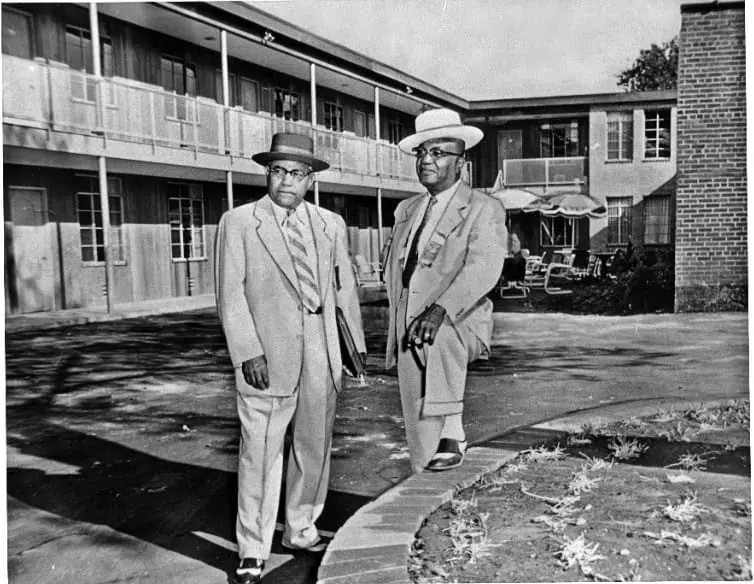
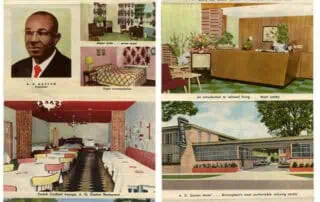
Now in his mid-sixties, A. G. never let up. He continued to learn: self-taught in finance, he read the Wall Street Journal each day. In 1957, he created Citizens Federal Savings and Loan Association to loan money to blacks who were turned down by the white banks. That year, he and Minnie moved to an estate in the suburbs, replete with gardens and a swimming pool where they swam every day. The two lived out their long lives in this home.
A.G. worked hard to get more blacks to vote. When the city of Tuskegee, 80 percent black, redrew its borders to exclude black voters, the city’s banks also demanded that all black home mortgages be immediately repaid. A. G. stepped in, and the Citizens Federal offered to make home loans to anyone who needed one.
In the Midst of the Civil Rights Battlefield
In the great battle for civil rights in the 1960s, it was unavoidable that Birmingham would play a role, and with it, its leading black citizen, Arthur G. Gaston.
In October of 1961, a judge ordered the desegregation of Birmingham’s public parks and swimming pools. The mayor of the city opposed the move, but the controversy resulted in the closing of sixty-seven parks and numerous other facilities, including the zoo and the art museum.
Increasingly active college students wanted to boycott Birmingham’s downtown department and dime stores, which like every other business had separate “Negro” elevators, restrooms, drinking fountains, and lunch counters. These stores received much of their revenue from the black community, but rarely hired and never promoted blacks in their workforces.
A.G. had spent his life working with the city’s white business leaders, his friendships going back to the early days with the Loveman family, who owned one of those stores. Always a realist and always seeking nonviolent means, he convinced the students not to boycott.
At one meeting with A. G. and black and white leaders, the local Sears, Roebuck manager had his janitor “accidentally” paint over the “Whites Only” signs in his store. The other merchants reluctantly followed suit. But the segregationists would not hear of it. Birmingham City Commissioner and Chief of Police “Bull” Connor threatened the stores into observing the city’s sign ordinances.
Soon, Martin Luther King, Jr., and other leading black activists from the Southern Christian Leadership Council (SCLC) focused their attention on Birmingham. Often at odds with their more confrontational tactics, A. G. had a rocky relationship with them. Nevertheless, he often supported the activists’ efforts with money, printing presses, office space, and the use of his big auditorium, where King and others made numerous speeches. The activists’ headquarters was the A. G. Gaston Motel and restaurant.
By Easter of 1963, the students and activists had targeted the key Easter shopping season, and planned their boycotts, marches, and sit-ins. On April 10, 1963, Bull Connor got a court order prohibiting any marches, sit-ins, picketing, or parades. But this did not stop the movement, and on Easter Sunday blacks packed into white churches. King and the others wanted to get the children of Birmingham to march, a move A. G. strongly opposed. But march they did, and on May 2 and 3, 1963, Bull Connor turned powerful fire hoses on the marchers, hurling small children into the air with their force. Hundreds, including children, were arrested, until the jails were full. These events sickened A. G.’s heart and made him more active and less willing to compromise. The events also made the national news, seen on television by millions, scarring his beloved city.
Martin Luther King was thrown in jail twice, and bailed out by A. G., though King was not pleased—he wanted to keep speaking and writing from jail, highlighting his plight for the press. A. G. also bailed out the other protestors.
At this point, things became so intense that the Kennedy administration, especially Attorney General Robert F. Kennedy, became involved in trying to resolve the situation. President John F. Kennedy announced his civil rights bill, which did not become law until President Johnson made it happen in 1964. A. G. and Minnie were guests of President Kennedy in the White House, one of the greatest honors the former miner ever received.
But the situation in Birmingham remained volatile. A tear gas attack on Loveman’s Department Store sent twenty people to the hospital. Two firebombs were hurled at the Gastons’ suburban estate home, where A. G. and Minnie were asleep. They were uninjured but scared out of their wits, especially Minnie. The culprit was never caught, and A. G. knew it might have been white racists or it might have been black activists, who often called him an “Uncle Tom,” even a “Super Uncle Tom” for his long years of conciliatory work with whites.
On Sunday morning, September 15, 1963, four little black girls attending Sunday school were killed by a bomb thrown into the Sixteenth Street Baptist Church.
In the middle of all this madness, A. G. continued to try to find solutions: long-term, peaceful solutions. He founded the A. G. Gaston Boys Club in 1967, which evolved into the A. G. Gaston Boys and Girls Club, still going today.
In 1968, A. G. wrote and self-published his book, Green Power, advocating his gospel of hard work, education, saving, and self-reliance. In 1969, Citizens Federal built a new headquarters building—and by 1972 had $16 million in assets. A. G. also created the A. G. Gaston Construction Company. In 1971, A. G.’s only son, Arthur Jr., died, leaving five children.
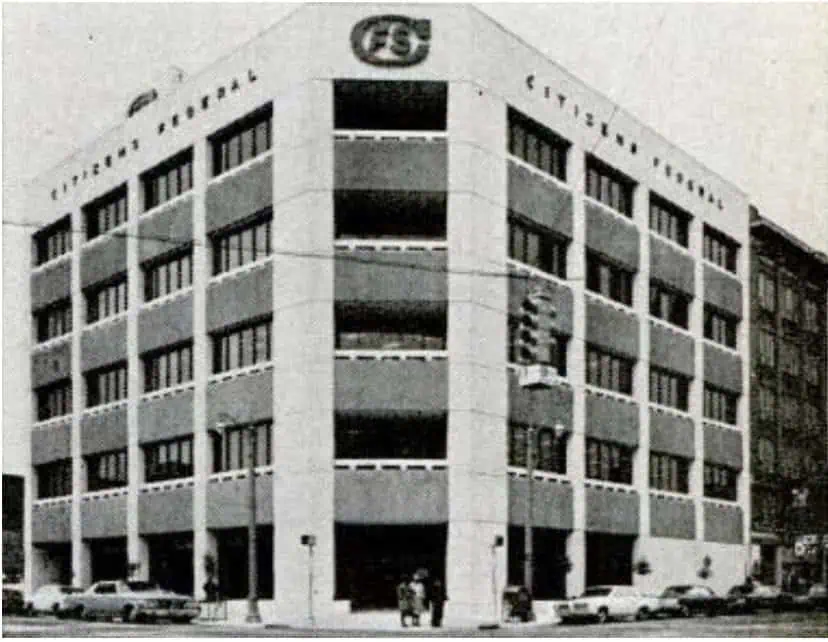
A.G. bought two radio stations in 1975, WENN and WAGG (for Arthur George Gaston), for about $600,000. These were later sold for $15 million. His complete career demonstrates his use of and respect for the media, and he later lamented that he never got into the television or cable businesses (which gave rise to the first black American billionaire, BET–Black Entertainment Television’s—Robert L. Johnson).
No Quiet Retirement
Any thoughts that A. G. would slow down, or that he would drop out of the public eye, were wrong. On January 23, 1976, a mentally unstable black man, Charles Lewis Clayborn, Jr., broke into the eighty-three-year-old A. G.’s house while he and Minnie were asleep. Clayborn knocked Minnie unconscious, handcuffed her, and bashed A. G.’s head with a hammer before throwing A. G. into the backseat of his own Cadillac and driving off with him, a bag over his head. Police soon caught up with the kidnapper and saved A. G., though Minnie’s worst fears about their safety were confirmed.
But nothing stopped the old man. He continued to go into the office every day and had his hands in all his businesses.
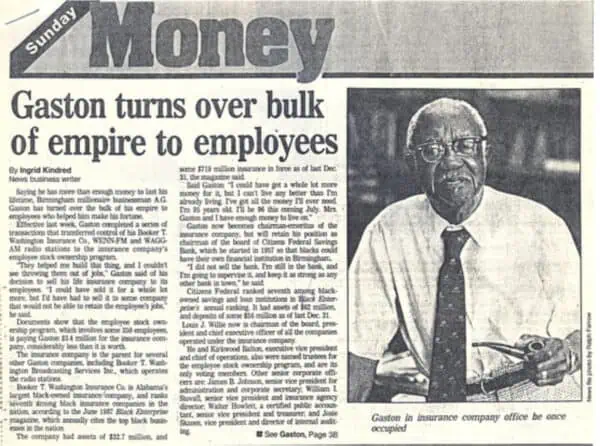
In a most unusual move, and one not loved by his many relatives, in 1987, A. G. sold the insurance company—probably worth about $35 million—to 350 of his black employees for $3.5 million, giving up 90 percent of its value. As hard a man as he may have been, he remained true to his ideal of lifting other blacks out of their situations.
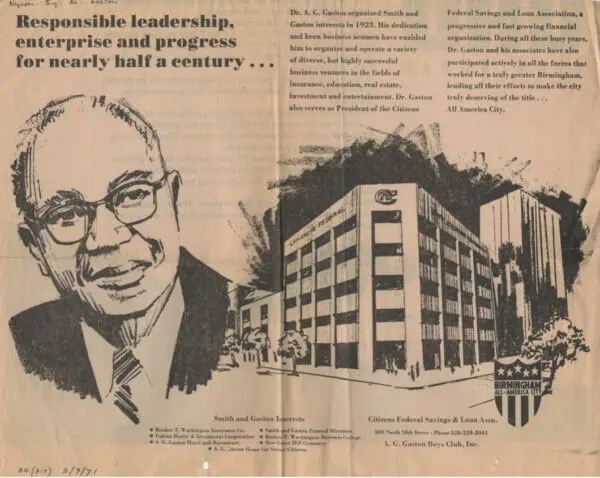
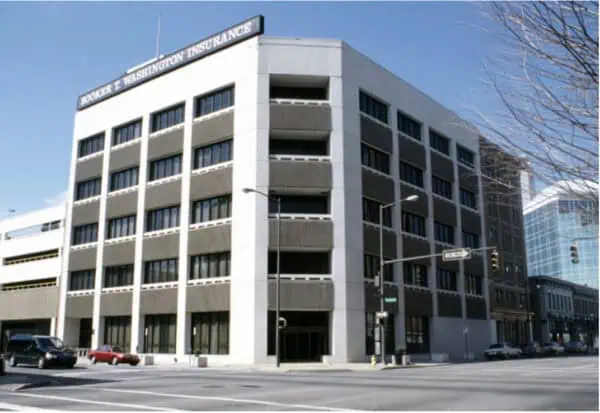
On January 19, 1996, Arthur George Gaston died at the age of 103, outliving almost everyone he had ever known, except Minnie, who died four years later.
A.G.’s empire faded over time—the motel closed in 1982, the Business College in 1988, the bank sold to a black Atlanta-based bank in 2003, and the insurance company liquidated in 2010. However, the A. G. Gaston Boys and Girls Club lives on, perhaps the most appropriate descendant of this man who always believed in bettering oneself and helping others to do the same.
_____________________________________________________________________________
Source: This article is based on the 2004 biography of A. G. Gaston, Black Titan, written by his niece, Carol Jenkins, and her daughter, Elizabeth Gardner Hines.
Gary Hoover has founded several businesses, each with the core value of education. He founded BOOKSTOP, the first chain of book superstores, which was purchased by Barnes & Noble and became the nucleus for their chain. He co-founded the company that became Hoover’s, Inc. – one of the world’s largest sources of information about companies, now owned by Dun & Bradstreet. Gary Hoover has in recent years focused on writing (multiple books, blogs) and teaching. He served as the first Entrepreneur-In-Residence at the University of Texas’ McCombs School of Business. He has been collecting information on business history since the age of 12, when he started subscribing to Fortune Magazine. An estimated 40% of his 57,000-book personal library is focused on business, industrial, and economic history and reference. Gary Hoover has given over 1000 speeches around the globe, many about business history, and all with historical references.

